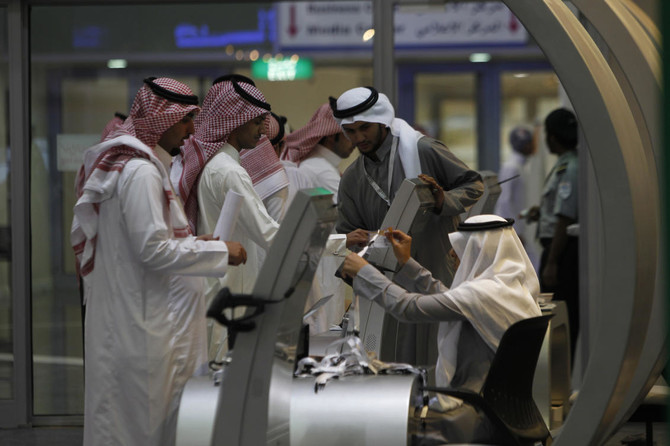LONDON: High wages in state-supported sectors in the Middle East, offering jobs aplenty to work-hungry citizens fail to tackle growing unemployment as population levels rise, and do not provide better public services, according to an IMF paper.
Public sector employment is being maintained as a result of high levels of public employment, unusually large compensation, or sometimes both, said the paper entitled “Public Wage Bills in the Middle East and Central Asia.”
The International Monetary Fund said labor markets become distorted in countries where public sector compensation “grossly” exceeds that in the private sector. Nor does it spur job creation, crucial in countries where significant numbers of young people are seeking employment, the IMF said.
A better solution to mitigate unemployment and population growth would be to foster “diversified private-sector-led growth.”
That path is already being followed in Saudi Arabia via its Vision 2030 reform plan, which stated: “We will improve the business environment, so that our economy grows and flourishes, driving healthier employment opportunities for citizens and long-term prosperity for all. This promise is built on cooperation and on mutual responsibility.”
The IMF pointed out that the capacity of Middle Eastern public sectors to absorb a growing labor force is increasingly limited, making private investment and job creation the only sustainable and inclusive way of addressing persistent unemployment and low employment that are big challenges in the region.
In an interview with Arab News, Jason Tuvey, GCC economist with Capital Economics, said the IMF has been calling for years for governments in the Gulf to get a grip on their public sector wage bills.
He said Saudi Arabia, for instance, needed to close the wage gap between Saudi nationals, who tend to dominate the public sector, and migrant workers who fill positions in low-wage, low productivity private sectors.
Saudi nationals need to move into higher-productivity parts of the private sector, “which in turn needs bolstering in order to diversify the economy away from oil dependency,” said Tuvey.
Saudi Arabia is already prioritizing private sector investment, flagged in Vision 2030, and, according to a recent budget statement, KSA’s non-oil revenues are rising as diversification away from oil gathers pace.
Tuvey said: “The IMF has talked about implementing wage subsidies for Saudi nationals, to encourage private sector firms to employ them. While there would be a cost to that, it would be much less than being forced to employ these workers in the public sector.”
KSA needs to push through reforms in education to provide young Saudis with a skills set to move into higher-productivity private segments of the economy, said Tuvey. The Kingdom has already committed to this via its education modernization programs, also outlined in Vision 2030.
Last year, Capital Economics said in a paper that privatizations should reduce the Saudi government’s dominant role in the economy. And a new bankruptcy law, as well as plans to make it easier to acquire permits, would address some of the issues that hinder the conduct of business in KSA.
Speaking about the region generally, including countries in Central Asia, the IMF paper said the “disproportionate” size of national, public sectors, as well as large public wage bills have failed to improve the availability and quality of public services that are vital for addressing “economic development challenges.”
It added: “Unemployment insurance can better address the risk of unemployment while supporting well-functioning labor markets.
“Social safety nets can be developed to reduce poverty and social exclusion, as well as mitigate the cost of wage bill reforms,” said the IMF.


























